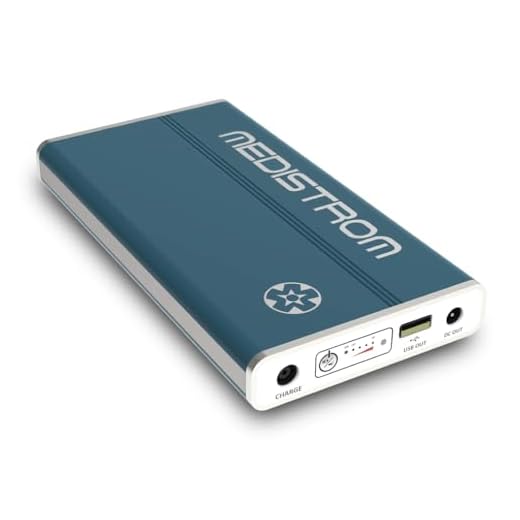





For air travel, complying with regulations regarding battery transport is crucial. Lithium-ion cells, commonly found in devices like smartphones and laptops, are permitted in personal items, while adhering to capacity limits of 100 watt-hours for individual batteries and total watt-hours for multiple units.
Spare lithium batteries must be safeguarded from short-circuiting by placing them in their original packaging or individual protective bags. Ensure that battery terminals are insulated. Larger batteries exceeding 160 watt-hours are strictly prohibited aboard commercial flights.
NiMH and alkaline cells are also suitable for carry-on bags, but regulations can vary by airline. Always check airline-specific guidelines before departure. Preparing in advance helps avoid security complications and ensures a smooth travel experience.
Guidelines for Transporting Batteries in Hand Luggage
Always ensure that lithium-ion and lithium metal types are within the allowed limits. For lithium-ion cells, the watt-hour rating should not exceed 100 Wh per cell. For lithium metal batteries, the lithium content must not exceed 2 grams.
- Keep spare cells in their original packaging or a protective case to prevent short circuits.
- Limit the number of loose batteries carried; generally, a maximum of two spare batteries is permissible.
- Ensure each battery is securely stored, ideally in a separate compartment of your bag.
Check airline regulations as they may vary. Some airlines might restrict certain models or brands based on safety assessments. Always confirm with the airline prior to travel.
In case of damaged or swollen batteries, do not attempt to transport them. Dispose of such batteries at designated facilities for hazardous waste.
Regulations for Lithium-ion Batteries in Carry-On Bags
Lithium-ion cells with a watt-hour rating below 100 Wh are allowed in hand baggage without prior approval from the airline. However, those rated between 100 Wh and 160 Wh require airline permission before transport. Examples include power banks and batteries for laptops.
It’s advisable to keep spare cells secured in their original packaging or insulated to prevent short-circuiting. Loose terminals should be capped with tape. For devices powered by these cells, ensure they are switched off to prevent accidental activation.
Check individual airline policies, as restrictions can vary. Airlines might impose additional regulations, particularly regarding the number of cells permitted. Always verify before traveling.
Remove devices with lithium-ion cells from bags during security screening, if requested. This facilitates inspection while ensuring compliance with security regulations.
How to Properly Store Batteries for Air Travel
Store cells in their original packaging when possible. This method protects terminals and minimizes the risk of accidental short-circuiting.
Use insulating tape to cover exposed terminals on loose cells or packs. This simple step prevents unintentional contact with metal objects, which could lead to hazards.
Maintain a moderate temperature. Extreme heat or cold can compromise performance and safety. Aim for conditions between 20°C and 25°C (68°F and 77°F).
Keep the cells dry. Moisture can cause damage, leading to leakage or corrosion. Store them in a moisture-resistant container to safeguard against humidity.
For lithium-ion types, ensure they are charged between 30% and 60% before travel. This charge level is ideal for maintaining battery life during transit.
Ensure that any device containing batteries is powered off to further reduce energy draw and limit the chance of overheating during the flight.
Regularly inspect batteries for signs of damage, swelling, or leakage. Dispose of any compromised units according to local regulations.
Familiarize yourself with airline policies regarding battery storage. Each airline may have specific guidelines that must be followed to ensure safety.
Types of Batteries Allowed in Cabin Luggage
Only specific types of energy sources are permitted for air travel in the passenger section. Lithium-ion and lithium metal cells are common, yet they have strict limitations. Batteries exceeding 100 watt-hours or those with a lithium content over 300 grams are generally prohibited within personal items. Always verify the specifications of each unit prior to traveling.
Lithium-Ion Batteries
Common in electronics like laptops and smartphones, lithium-ion variants are usually accepted. Maximum capacity for these products is capped at 160 watt-hours, and each passenger is allowed a maximum of two batteries in this category that exceed 100 watt-hours. Smaller capacities under 100 watt-hours typically present no issues.
Lithium Metal Batteries
This type, often found in cameras and certain gadgets, is restricted to a maximum of 2 grams of lithium content. The quantity allowed is generally more generous, but specific airline policies may provide additional guidelines. Taking precautions, such as protecting terminals, is advisable to prevent accidental short-circuits.
For detailed guidance, consider additional resources, such as are siemens fridge freezers any good, as similar regulations may apply to household devices.
Consequences of Non-Compliance with Battery Regulations

Failing to adhere to battery regulations can lead to significant repercussions. Airlines may refuse boarding or confiscate items that do not meet safety standards, causing delays and frustration for travelers. Additionally, non-compliance can result in hefty fines imposed by aviation authorities, which can vary by jurisdiction.
Travel Disruptions and Delays
Travelers found with prohibited energy sources risk missing their flights as security personnel may require additional screening or disposal of non-compliant items. This often leads to missed connections and requires rescheduling, inevitably extending travel time.
Legal and Financial Ramifications
Legal actions can arise from repeated offenses, and individuals may face a permanent ban from certain airlines. This harsh response is intended to uphold passenger safety and prevent potential hazards on board. Compliance not only ensures smooth travel but protects personal and public interests.
For those seeking reliable gear for travel, consider the best crag backpack to securely store compliant energy sources while on the go.







